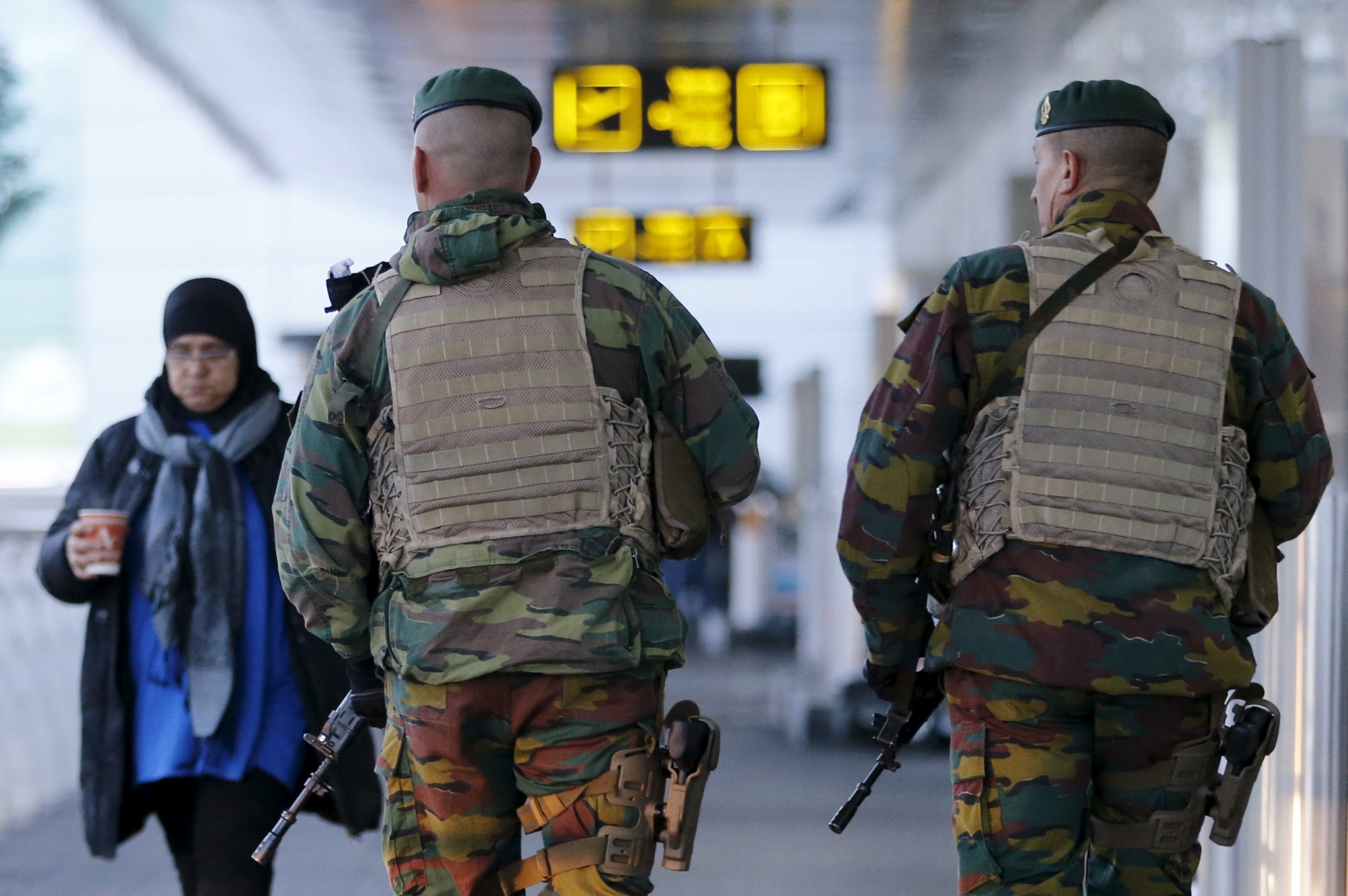
Two explosions ripped through Brussels airport in the rush hour of Tuesday morning as many passengers were checking in to their flights, leaving at least 13 dead and 35 seriously injured, according to Belgian media reports.
The airport, which serves over 23 million passengers a year, cancelled all flights and was evacuated. The Belgian interior minister raised the country's threat level to maximum in the wake of the blasts.
Belgian authorities are yet to link the explosions to extremism but Reuters, citing the Belgian News Agency, reported that Arabic was shouted and shots were fired before the two blasts. The explosions come just days after the arrest of the lone surviving Paris attack, Salah Abdeslam. There were also unconfirmed reports of another blast at a metro station near the European Union institutions in the city.
While Belgian authorities detained the French national of Moroccan descent after a four-month manhunt, the raid on his Molenbeek hideout and that of another accomplice Mohammed Belkaid earlier in the week revealed that further atrocities were being planned in the Belgian capital.
A Belgian police sniper killed Belkaid in a raid last Tuesday but two of Abdeslam's accomplices remain at large, with at least one of them described as "armed and dangerous." The two men are Mohammed Abrini and Najim Laachraoui.
Laachraoui, a 24-year-old Belgian citizen, traveled to Syria in February 2013. Belgian authorities revealed his identity yesterday after discovering his DNA at a house in the town of Auvelais, 30 miles south of Brussels, and another house in the Schaerbeek district of the city, both searched in the aftermath of the Paris attacks. In the latter property, investigators discovered traces of TATP, a product used inside the suicide vests in the Paris assaults.
The 24-year-old is still on the run and was operating under the name Soufiane Kayal. Authorities said that he was the man traveling with Abdeslam and Mohammed Belkaid, who a police sniper shot dead in a Brussels raid on Tuesday, when they were stopped between Hungary and Austria in September 2015.
An alumni newsletter from the Institut de la Sainte-Famille d'Helmet suggests that Laachraoui studied electromechanical engineering at the school in Brussels' Schaerbeek, The New York Times reported. This information shows that the fugitive not only knows the city well, having grown up there, but had been present in the country as late as December 2015. His current whereabouts are unknown.
The other fugitive, Abrini, grew up with Abdeslam in Molenbeek and was filmed alongside Abdeslam at a petrol station in Ressons-sur-Matz, on a highway to Paris, on November 11, just days before the coordinated shooting and suicide bomb attacks in the French capital. The 30-year-old was seen driving a Renault Clio that was used to transport a group of the Paris attackers.
Belgian authorities said after the Paris attacks that Abrini was likely "dangerous and probably armed" and issued an arrest warrant for him. They believe that he had traveled to Syria, possibly for jihadi training, before re-entering the EU's borders and his home country of Belgium.
Their involvement in any of Tuesday's explosions is as yet unknown and, even if it was an act of extremism, they may not be the perpetrators. Still, the fact that these two men were still at large ahead of the explosions ensured that the threat to the Belgian capital from jihadi extremism remained ever-present.
Uncommon Knowledge
Newsweek is committed to challenging conventional wisdom and finding connections in the search for common ground.
Newsweek is committed to challenging conventional wisdom and finding connections in the search for common ground.
About the writer
Jack is International Security and Terrorism Correspondent for Newsweek.
Email: j.moore@newsweek.com
Encrypted email: jfxm@protonmail.com
Available on Whatsapp, Signal, Wickr, Telegram, Viber.
Twitter: @JFXM
Instagram: Read more
To read how Newsweek uses AI as a newsroom tool, Click here.








